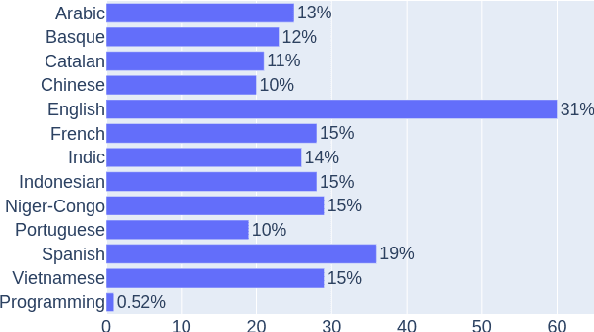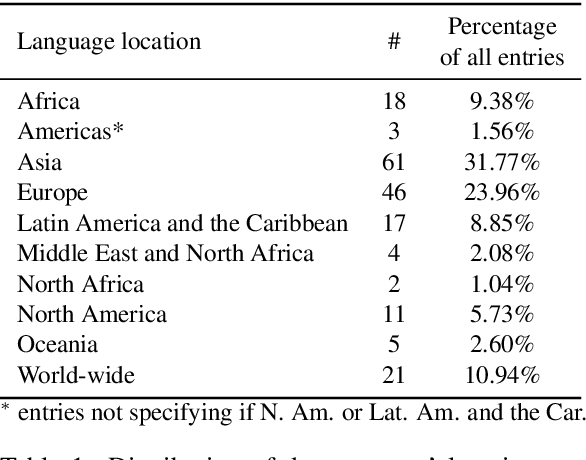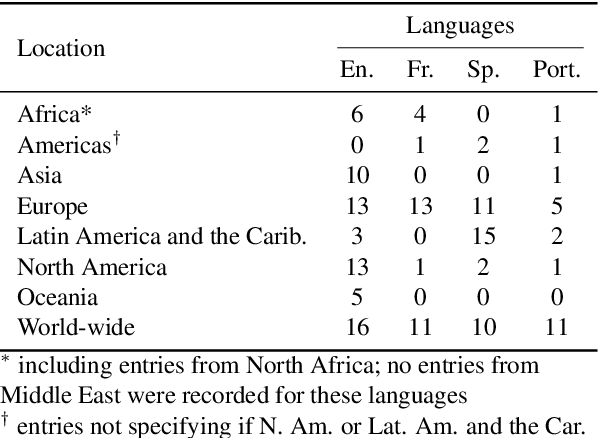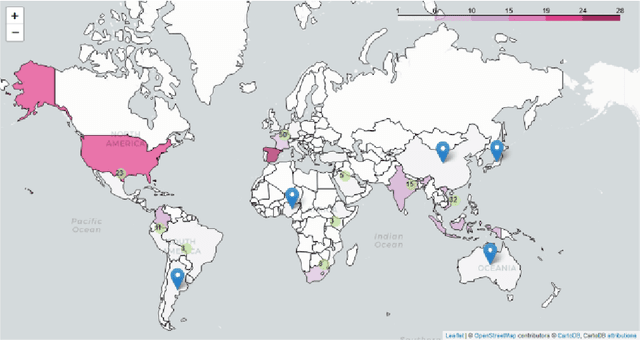Gérard Dupont
The ROOTS Search Tool: Data Transparency for LLMs
Feb 27, 2023


Abstract:ROOTS is a 1.6TB multilingual text corpus developed for the training of BLOOM, currently the largest language model explicitly accompanied by commensurate data governance efforts. In continuation of these efforts, we present the ROOTS Search Tool: a search engine over the entire ROOTS corpus offering both fuzzy and exact search capabilities. ROOTS is the largest corpus to date that can be investigated this way. The ROOTS Search Tool is open-sourced and available on Hugging Face Spaces. We describe our implementation and the possible use cases of our tool.
BLOOM: A 176B-Parameter Open-Access Multilingual Language Model
Nov 09, 2022Abstract:Large language models (LLMs) have been shown to be able to perform new tasks based on a few demonstrations or natural language instructions. While these capabilities have led to widespread adoption, most LLMs are developed by resource-rich organizations and are frequently kept from the public. As a step towards democratizing this powerful technology, we present BLOOM, a 176B-parameter open-access language model designed and built thanks to a collaboration of hundreds of researchers. BLOOM is a decoder-only Transformer language model that was trained on the ROOTS corpus, a dataset comprising hundreds of sources in 46 natural and 13 programming languages (59 in total). We find that BLOOM achieves competitive performance on a wide variety of benchmarks, with stronger results after undergoing multitask prompted finetuning. To facilitate future research and applications using LLMs, we publicly release our models and code under the Responsible AI License.
Documenting Geographically and Contextually Diverse Data Sources: The BigScience Catalogue of Language Data and Resources
Jan 25, 2022



Abstract:In recent years, large-scale data collection efforts have prioritized the amount of data collected in order to improve the modeling capabilities of large language models. This prioritization, however, has resulted in concerns with respect to the rights of data subjects represented in data collections, particularly when considering the difficulty in interrogating these collections due to insufficient documentation and tools for analysis. Mindful of these pitfalls, we present our methodology for a documentation-first, human-centered data collection project as part of the BigScience initiative. We identified a geographically diverse set of target language groups (Arabic, Basque, Chinese, Catalan, English, French, Indic languages, Indonesian, Niger-Congo languages, Portuguese, Spanish, and Vietnamese, as well as programming languages) for which to collect metadata on potential data sources. To structure this effort, we developed our online catalogue as a supporting tool for gathering metadata through organized public hackathons. We present our development process; analyses of the resulting resource metadata, including distributions over languages, regions, and resource types; and our lessons learned in this endeavor.
A question-answering system for aircraft pilots' documentation
Nov 26, 2020



Abstract:The aerospace industry relies on massive collections of complex and technical documents covering system descriptions, manuals or procedures. This paper presents a question answering (QA) system that would help aircraft pilots access information in this documentation by naturally interacting with the system and asking questions in natural language. After describing each module of the dialog system, we present a multi-task based approach for the QA module which enables performance improvement on a Flight Crew Operating Manual (FCOM) dataset. A method to combine scores from the retriever and the QA modules is also presented.
 Add to Chrome
Add to Chrome Add to Firefox
Add to Firefox Add to Edge
Add to Edge